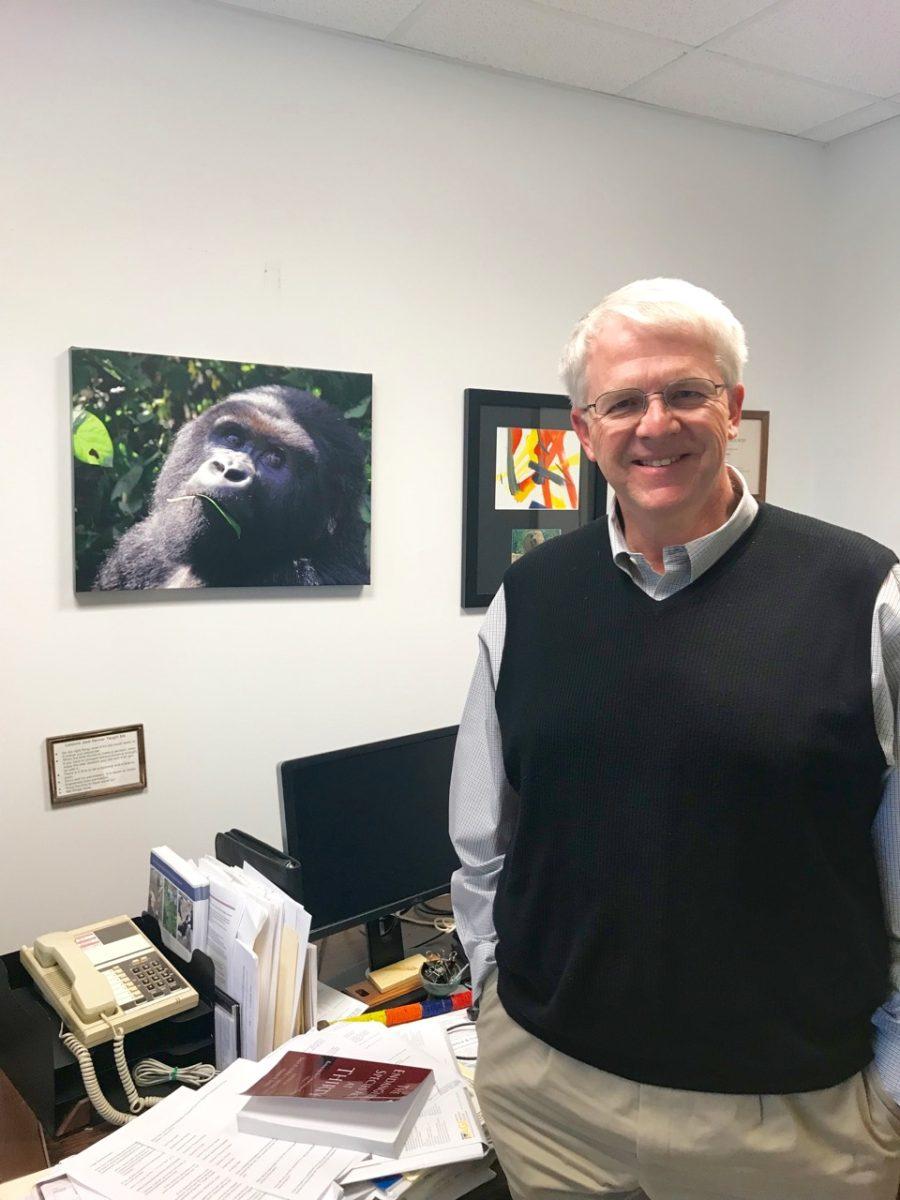Highlighting the stories of Drake students and faculty.
Michael Renner, Drake University professor of psychology, biology and environmental science, didn’t take long to construct his ideal dinner guest list. The first seat goes to the 1300s Dominican monk Theodoric of Freiberg.
“He figured out that water could act as a prism, and to make a discovery that sort of upended the whole way you see the world . . . I’d like to talk to somebody who’d had that experience,” Renner said.
The other seats at the table would be filled by Charles Darwin, Barack Obama, Jane Goodall and Johann Sebastian Bach. A peculiar mix, to say the least.
Dr. Renner grew up in Norman, Oklahoma, and he’s a second-generation academic after his father. By the time he was eight, he said, people began telling him he was going to be a professor.
Throughout his professional career, he’s held various faculty and administrative positions including the dean of arts and sciences at a college in New York and the provost at both Mansfield University in Pennsylvania and Drake.
Now, however, he wants to be a scientist again.
Since 2011, Renner has worked and researched at the Gishwati Forest Reserve in Rwanda, East Africa. After the genocide of 1984, the country became serious about environmental protection upon realizing tourism could be their main source of income.
Rwanda is home to varying ecosystems, and they are fostered within its four main national parks. Each one is a bit different from the others.
“Akagera (National Park) is the ‘Lion King,’” Renner said. “It’s a savannah park, you know, there are lions and zebras and elephants and giraffes . . . all kinds of cool stuff.”
Perhaps Rwanda’s most famous park, however, is the Volcanoes National Park, a single-purpose park existing for only one reason: mountain gorillas. The park happens to be the only place on Earth these creatures can be seen, and it’s just a short drive away from Renner’s post at Gishwati.
“You have to keep your distance and they tutor you pretty aggressively before you go,” Renner said. “But to be in the presence of these amazing, majestic, magical and fundamentally peaceful creatures is really interesting. It’s kind of a bucket list experience for a lot of people.”
Renner has visited Volcanoes Park on three separate occasions. There’s a canvas above his office desk displaying a close-up portrait of one of the gorillas, the photo taken by Renner himself.
When he’s here in Des Moines, he researches things like behavioral monitoring at Blank Park Zoo, another peak area of interest within his field.
Aside from his multitude of research projects, Renner enjoys traveling, watching his 17-year-old son play high-level soccer, reading science fiction and spending time with his family.
He also noted that “sometimes, just sitting in the quiet is lovely.”
“For someone who’s spent a large part of his life in public positions, I’m an introvert,” Renner said. “I’m perfectly happy alone. I like the company of other people, but I’m not discontent when I’m by myself.”
He urges hopeful scientists and scholars to “stay in touch with your curiosity,” because it takes a lot of patience to wait for Mother Nature to let someone figure her out.
“There have been a couple of times in my career where, in the process of doing a piece of science, I’ve had that glimmer . . . that moment when you know something that no one else has ever figured out before,” Renner said. “I wish every student could have that experience, even just at a miniature scale. That true discovery. Because that would light you up about whatever your professional pursuit is going to be. To have that equivalent can fuel you for years.”







